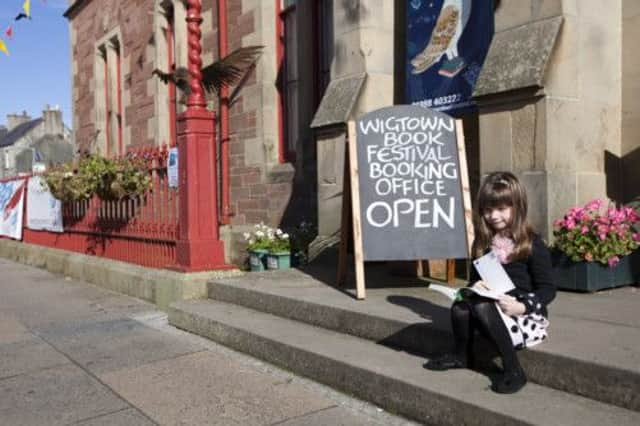Wigtown Festival parades its artistic independence


My “Brigadoon” impression of an impossibly picturesque place was reinforced by the ephemeral white marquees, to be taken down and removed once the festival was over; and by the crowds, who would disperse once the authors and panels had gone. Then, I fully expected, Wigtown would simply vanish back into the autumn mist until next year.
The spell that the festival casts over this book town is, of course, an illusion: Wigtown is famously crammed full of bookshops all year round that, bursting with fiction as they may be, ironically anchor the town firmly in the real. And there’s a reflection of that emphasis on the real in this year’s programme, too, with its themes of the natural world and the political a year before Scotland’s referendum on Independence.
Advertisement
Hide AdForaging workshops, badgers, birds, Sara Maitland’s Moss Witch and a re-assessment of Nan Shepherd all gather under the banner of Nature, while seasoned journalists Lesley Riddoch and Iain McWhirter, along with BBC reporter Brian Taylor, get us thinking about and debating political futures.
But where the two, the magical and the real, blend perfectly is in another theme of the festival: history. This year, Wigtown is positively bursting with it. From Rosemary Goring’s battle-strewn After Flodden, to James Robertson’s The Professor of Truth that recalls Lockerbie; from panels asking what history should be taught in schools, to Simon Garfield’s history of letter writing; from Noel Coward’s last years as envisioned by novelist Janette Jenkins, to Jane Murray Flutter’s reminiscences about her mother, Rumer Godden; from Jack Hunter’s life of Alexander Murray, to Lucy Moore on Nijinsky, this is a programme that conjures up “what might have been” along with the real. DJ Taylor wonders what would have happened if Edward VIII hadn’t abdicated; Helen Vincent ponders the fate of Jane Austen’s Sisters, those Scottish contemporaries who are rarely read now.
It is fitting that, as Scotland looks to the future in a referendum 12 months hence, that one of its favourite book festivals also assesses the past, to wonder and speculate about and explore changes that have been. The spell that Wigtown itself casts, though, is a constant; its magic does not vanish with the changing seasons.
• Wigtown Book Festival, tomorrow to 6 October. (http://www.wigtownbookfestival.com/|www.wigtownbookfestival.com|Click here}